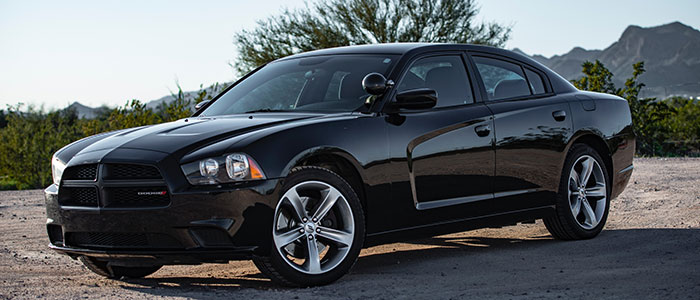Need a replacement ECM? We sell preprogrammed “plug and play” engine computers (ECMs, TCMs, and PCMs) for all makes and models! We only sell OEM parts that are GUARANTEED to work with your vehicle.
Order today and it’ll ship within 48 hours: find the right ECM for your vehicle now »


Nowadays, cars are smart. Your vehicle today is as much a sophisticated computer as it is a mechanical machine, which is great because that computer keeps your engine running safely and more efficiently. What that also means though is that sometimes it can get confusing to understand what the different computer-related components are and what they actually do for your car and its engine.
When people refer to your car’s “computer” you’ll often hear phrases like “engine control module” (ECM), “engine control unit” (ECU), “powertrain control module” (PCM), and “transmission control module” (TCM). Essentially, these are all the different parts of your vehicle’s “brain” that control all the functions and interactions of your car’s different complex subsystems.
ECM vs. ECU
We’ll start with the easy one. Both names, Engine Control Module and Engine Control Unit actually refer to the same component. Depending on the manufacturer, this system is called either the ECM or the ECU. What they both do, though, is essentially take in information from various sensors in your car’s engine, allowing your engine to operate with optimal power and efficiency.
In modern engines, the ECM/ECU collects key data from all your car’s engine systems, including the intake, exhaust, cooling system, and several internal components to judge the running condition of the engine. Using that information, it determines the position of the camshafts, the throttle, ignition timing, fuel injection timing, and, in turbocharged cars, waste gate pressure. This keeps your engine running at peak performance, even in changing conditions.
What’s a Transmission Control Module (TCM)?
The Transmission Control Module does exactly what it sounds like—controls your car’s transmission. Similar to the ECM, in automatic transmission vehicles, the TCM takes in information and data from various switches and sensors in your car. These switches and sensors include those monitoring the positions of the gas and brake pedals, the transmission input and output speeds, gear selection, engine torque and speed, oil temperature, and wheel speed.
The TCM collects the information from all the sensors and determines when your transmission should shift gears. Traditional manual transmissions don’t need a TCM because the driver is shifting the gears themselves, but in automatics this component determines how and when your car should shift in order to produce the most efficiency and torque, given the signals it receives from all the sensors around your engine.
What’s a Powertrain Control Module (PCM)?
And finally, the Powertrain Control Module. The PCM is essentially the ECM and the TCM combined into a single module. Although it may appear like a single unit from the outside in most vehicles, it typically is actually two separate units (the ECM and TCM) housed together.
Through both of these systems, the PCM gets inputs from the sensors which are spread around your car and which give information related to Engine management and performance. The other subsystems controlled by the PCM include the Fuel Injection, Fuel emission, Automatic transmission, and Anti-lock brake systems, and so on.
Both the ECM and TCM operate independently in most cases, but because they are housed in a single PCM module, they are able to easily and efficiently share data and work together in tandem when it is necessary. With both the ECM and TCM together in a single unit, PCMs can better synchronize the functions of each one for better power delivery, fuel economy, and overall efficiency. For example, when the PCM decides to change gears, it can back off the throttle to make the shift smoother.
So, although these modules have different—and fancy sounding—names, they all basically work towards the same goal: to make your car smart so that it can operate as best as possible in varying and changing conditions. They are highly complex computers that coordinate functions across all your car’s sub systems in order to make sure everything runs smoothly. By doing so, they are critical to any healthy and properly running car.
